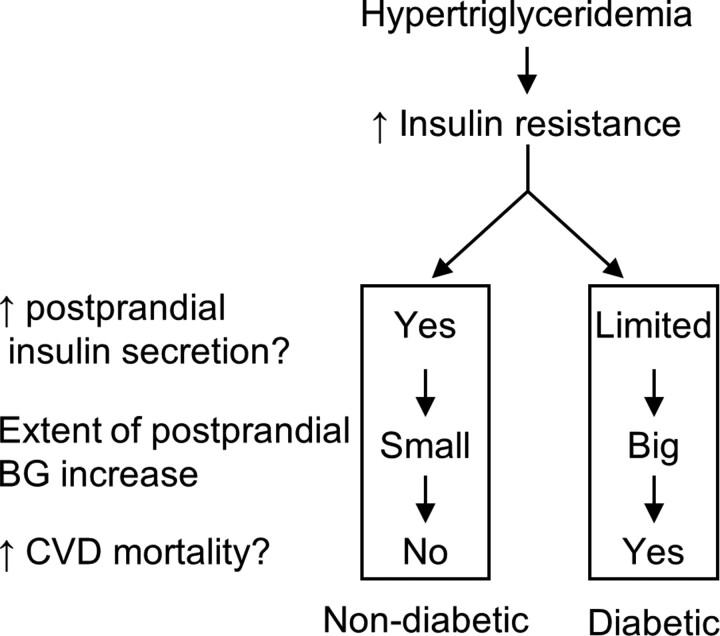Figure 1.
The proposed hypothesis of diabetes-induced sensitization to hypertriglyceridaemia-associated CVD mortality. High triglycerides induce insulin resistance. In people without diabetes, increased insulin resistance could be compensated by higher insulin secretion to maintain postprandial glucose homeostasis. However, in people with diabetes, the compensation capacity is limited, leading to a greater increase in postprandial BG, and ultimately, enhanced CVD mortality. ↑, increase; BG, blood glucose; CVD, cardiovascular disease.

